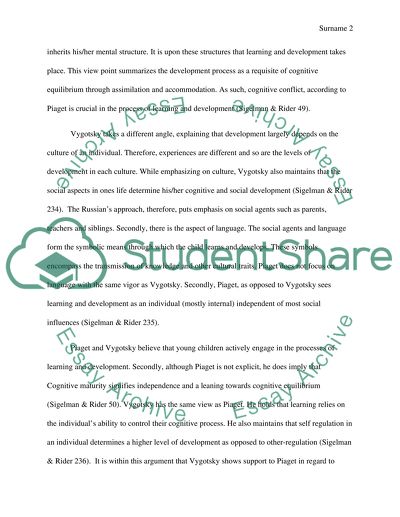Retrieved from https://studentshare.org/psychology/1602142-explain-the-similarities-and-differences-between-piagets-cognitive-development-theory-and-vygotskys-sociocultural-theory
https://studentshare.org/psychology/1602142-explain-the-similarities-and-differences-between-piagets-cognitive-development-theory-and-vygotskys-sociocultural-theory.


